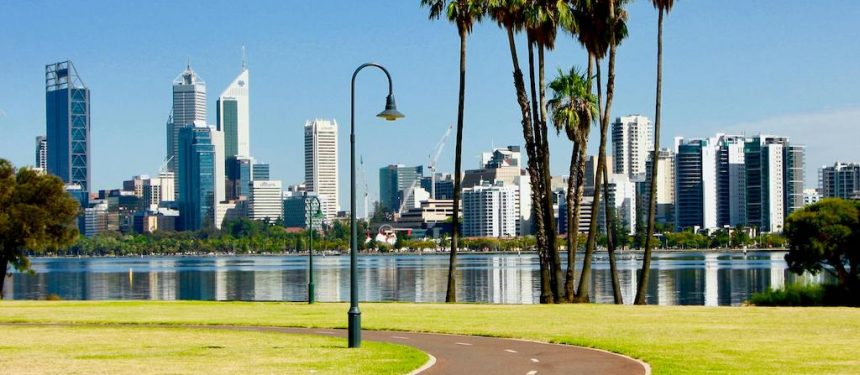The organisation’s latest policy brief attributed housing affordability and more general cost-of-living crisis as “fundamentally a supply side problem”, rather than issues relating to international students.
It comes days after a report from Australia’s PBSA organisation, the Student Accommodation Council, found that overseas students have been “unfairly blamed” for the country’s rental crisis.
The brief has also been published as more questions in the national media are being asked regarding introducing a cap on international student numbers similar to the one imposed in Canada earlier this year.
Key sector stakeholders have already rejected the idea of a formal cap, despite some suggesting there is an informal cap in place around slow visa approval rates.
While Go8 acknowledged that international student demand for housing is stronger in some inner city areas in Sydney and Melbourne, it said its members and purpose-built student accommodation providers are investing heavily in affordable student accommodation options.
“The number of international student arrivals has no direct bearing on underlying supply side factors,” Go8 chief executive Vicki Thomson said in a statement.
Those factors extend to: decades of underinvestment; government regulation, planning approvals, elevated construction costs and workforce shortages; supply chain disruptions; and weak productivity growth.
Regardless of international student intake, Australia would still be faced with a housing crisis, Thomson continued.
“These supply issues cannot be solved overnight,” she said.
“Any plans to impose a cap on international students as one mechanism to ease housing pressure – especially during a domestic skills crisis – is shortsighted and risks putting a brake on Australia’s economic growth and prosperity.”
Outgoing co-convener of the federal government’s Council for International Education, Julian Hill, this week told The Australian that a hard cap on international student numbers would “send a dreadful market signal globally and such a shock risks deterring the highest quality students, who are the ones we actually want”.
It would also be bad for Australia’s human capital and the talent pipeline, soft power and for academic excellence and research, he added.
The Go8 document notes that in Canada, sector stakeholders have already highlighted the negative implications, such as the sustainability of labour markets, diversity and meeting the needs of high-growth sectors.
Go8 CE @ThomsonVicki told @disruptradio that while the @GroupOfEight supports 100% the govt’s attempt to support quality & integrity in international ed with the Migration Review, the Go8 rejects any idea of a blanket cap on international students as it’s a very blunt instrument. pic.twitter.com/XKGXivlIYE
— #Go8 (@GroupOfEight) April 30, 2024
Thomson told disrupt.radio this week that the Go8 would reject a cap outright, as some regional locations such as Adelaide and Perth, don’t receive as many international students as they need.
For years, the government has been promoting regional Australia to international students to some success.
The government had also proposed one year ago that the system of awarding additional points to visa applicants who have studied in regional Australia could be scrapped. However, this did not play out.
Under December’s migration strategy, government clarified that Temporary Graduate visa holders are only eligible to extend their post-study work visas if they are in a select regional area.
“Australia is in a global race for top international students”
As one of Australia’s greatest export success stories, international education brought back $47.8 billion in spending from overseas students in 2023, contributing an 0.8% increase in GDP over 2023 as per National Australia Bank calculations, Go8 noted.
“Australia is in a global race for top international students who go on to earn advanced qualifications and help Australia’s drive to become a knowledge economy,” Thomson said.
A visa hike could be included in the May budget, which might hit students hoping to enrol in Australian universities.
Sector stakeholders already fear that visa rejection rates are impacting student interest, with peak bodies appealing to the minister for Home Affairs, Clare O’Neil, in a letter dated April 15.
Peak bodies including English Australia, ITECA, TAFE Directors Australia, Universities Australia, IEAA, IHEA and Independent Schools Australia raised concerns around refusals, delays, inadequate transparency, inconsistency and inequity in visa decision making.
Lasting damage is being done to the country’s economy and balance of trade, as well as its long-term reputation as a welcoming world class study destination, they said.
“This is costing jobs and causing significant financial strain to many organisations,” the peak bodies warned.
As a result of the country’s migration strategy, “high quality providers, including public universities, are being severely affected while providers at the other end of the quality and integrity spectrum are yet to be targeted, by either the national regulators or through legislative/regulatory measures”, they said in the open letter.
The 16% of students remaining in the country for the long term after graduating add skills and talent to critical areas such cyber security, defence, engineering and energy sectors, Thomson continued.
“The Go8 is not advocating for an open slather approach and backs the government’s goal to embed quality and restore integrity at all levels of the broader education sector,” she concluded.
“We need to target and retain high quality students to supplement our domestic workforce where there are skills gaps, and to boost sovereign capability.”




